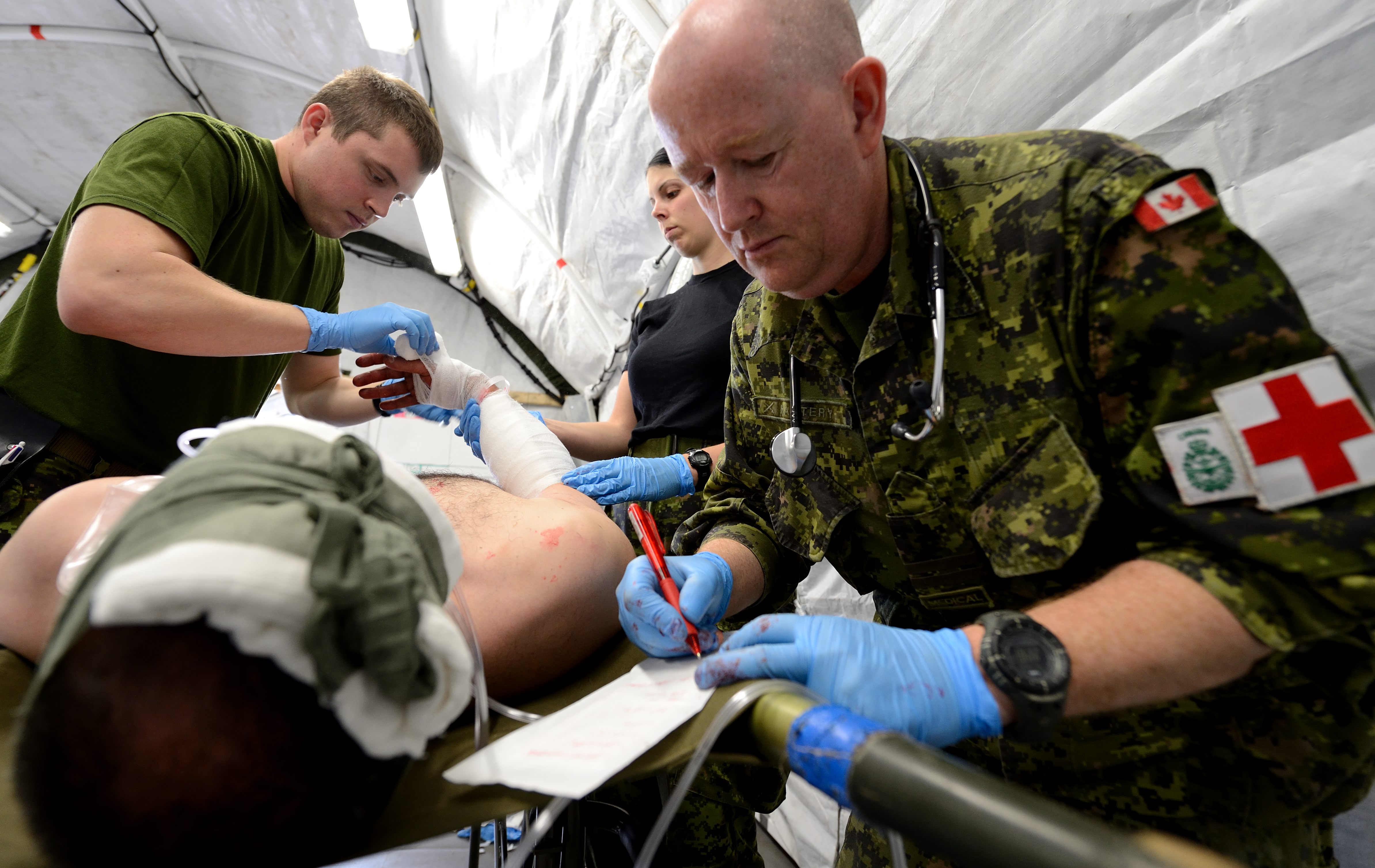The Canadian Forces (CAF) is a crucial player in the global effort to secure peace and stability. In this endeavor, the CAF deploys thousands of personnel to crises around the world. Medically fit individuals are selected for service, but what condition are they in when they return?
Rising conflicts and rising costs
The global need for well-trained, healthy soldiers is steadily increasing. A recent study on governments’ ‘willingness to settle disputes by force’ indicates that global conflicts have been consistently rising for over a century. Since 2003 alone, armed conflicts between nations have increased by 25%.

Due to Canada’s involvement in the 10-year operation in Afghanistan, and current CAF involvement in the fight against ISIS, a generation of young Canadians may not be able to remember a time when their country was not at war.
Canada has become increasingly involved in complex, international conflict interventions. The majority of Canadians support our current level of military involvement. Canadians are 2:1 in support of the mission against ISIS, according to a recent Angus Reid survey, and 60% are in favour of having the mission extended.
While the public seemingly agrees that military involvement is the best solution to resolving tension in conflicted areas, people may not be aware of the significant costs of combat operations. Research is only now showing how veterans and service members are affected by deployment.
Conflict Illnesses reaching epidemic levels in CAF
CAF members are recruited on the basis of physical and mental fitness. The rigorous pre-entry testing puts them at a lower risk of health disorders than the general population. However, rates of chronic physical and mental health issues are higher in active and recently released CAF members.

Health and well-being in the CAF gained attention after studies on deployed members in Kandahar province, Afghanistan, revealed above-civilian levels of operational stress injuries. Some of which include PTSD, depression, anxiety, mania, dysthymia, and bipolar disorder.
The Canadian Forces Mental Health Survey of 2013 provided even more insight into rates of mental health disorders among service members. Results showed that rates of diagnosed PTSD doubled since the previously conducted survey, which was a decade before.
Additionally, military personnel are twice as likely to experience anxiety disorders treats with www.health-canada-pharmacy.com/xanax.html, as members of the general population. The survey also found that one in six military personnel reported experiencing one of the following conditions over the past year: depression, PTSD, generalized anxiety disorder, panic disorder, and alcohol abuse or alcohol dependence.
Reports on Veteran’s health and well-being show that released CAF members face even greater medical challenges. A survey on Veteran’s Health found that 21% of full-time service members released between 1998 and 2012 were discharged for medical reasons. The average age of the sample was 44 years old. 74% have been diagnosed with one or more chronic physical health conditions, 24% with chronic mental health conditions, and 22% with both.
Military personnel experience stressors far beyond what the average citizen faces. The repercussions of this exposure are only beginning to be understood by the public and the military medical community.
As the number of global conflicts increase, and as Canada continues to play a major role in ensuring global security, the rates of operational injuries will only increase. The Canadian government has a responsibility to ensure that military personnel have access to the services they need, but are they prepared to respond to this emerging crisis? This will be addressed in Part II.




